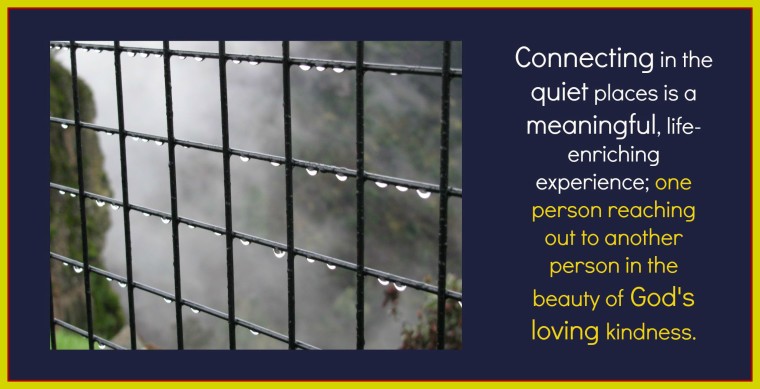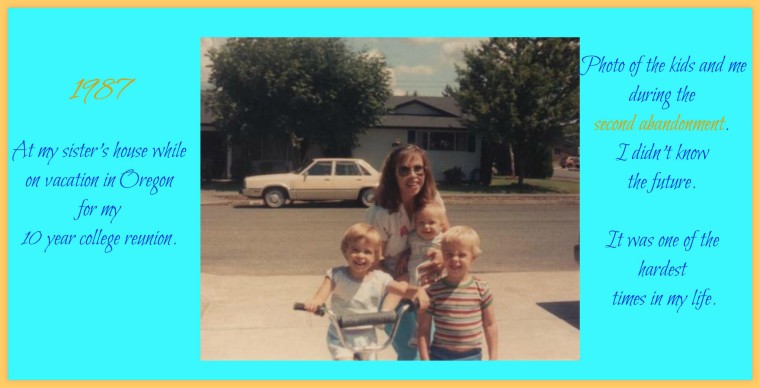
At a later stage in life our hair now in gray-white locks, we looked at each other, smiled and then embraced; it had been too many years. “I was trying to guess what you two would look like?” the joke came out of me as she and her husband stood in the entryway of my house. They both laughed and she made a witty comeback. Here they were, an old friend, one of the Christian women I long ago traveled with in college music groups back in the 70s, and her husband, also a good friend from college days.
Sometimes you know God is up to something. This was a divine appointment. I knew it the moment she called a few weeks before from their home two states away. I’d often wished to have such an opportunity. This was perfect. There would be no distractions. I asked God to guide our time together, for Him to lead us–as to whether the conversational thread should lend itself–to the reason I believed God might be bringing our paths to cross.
The conversation was lively, invigorating, somehow with a sense of familiarity. The years peeled away. I learned what led the two of them to become united as one, their falling in love and getting married. And the jobs and kids and grandchildren. I’d always admired her when we were college students and those same thoughts surfaced as we engaged in catching up. Still vivacious and quick-thinking, her liveliness made this a fun, stimulating visit. Soon, it was her and me talking. Her husband, by doing something else, opened it up so she and I could converse one-on-one. An hour or two later the conversation provided an opening. I asked the question I’d been pondering for a couple of days.
“Tell me about your daughter. What was she like? If you’re comfortable talking about her.” My friend’s words spilled out. She was a wonderful middle child, someone who was comfortable in her own skin, who had a real faith of which she often spoke even in the secular high school where she attended. An auditorium was filled with her teenage peers on the day of her memorial service. The small coastal town of their family’s residence mourned her loss in a collective sorrowing. There was sadness, regret, and pain. My dear friend, a teacher, shared the heartache, and the particulars concerning the accident which claimed her daughter’s life. She spoke of the residual impact on their family, and how more losses of other close family members soon followed. Life’s difficult happenings had grown into one huge pile of pain.
My friend shared how she cried out to God, “God, this is too much. I can’t handle any more of this.” I, too, remember saying those same words when my emotional energy was depleted and grief overwhelmed my soul. There are times when it’s all you can do to get up in the morning. I don’t remember what I said in response to her statement, but I identified. Words of comfort swirled back and forth and around us. We talked about how God uses our sorrows to reach out to others who are right “there” in the hurting place. There is a kinship found amongst co-sufferers. I shared some of my family’s losses of which she did not know other than my marriage ending.
“I read your book and it was helpful,” her voice softened, “Like you, I sometimes write out my prayers.” A mutual friend of ours had encouraged me to send them a copy of my book of spiritual contemplations. I hadn’t known if it was of comfort. There had been no contact. I told her about the reason behind the writing of the book, my troubled thoughts and aching heart. The writing of it provided a therapeutic exercise where I sorted out my pain and sorrows and sought God for help and healing. Her husband entered the conversation and the sense of joining intensified. I could tell pain had molded the two of them into deeper, compassionate and understanding people. It does that if you let it. The edges come off. It’s just you and God as you try to make sense of it all. The old constructs no longer fit after hardship and suffering has refined your earthen vessel.
I sensed God’s presence as the afternoon wore on and the Holy Spirit ministered to a felt need. Real friendship wrapped us in its comforting embrace. God’s grace drew us close. Tender love for my two sorrowing friends was being reflected back to me. We understood each other and it felt good.
“Want to pray?” I asked when they stood up to leave. The three of us gathered in a circle holding hands, and I began to pray. It was right to pray, to thank God for His help and goodness, and to ask a blessing for my friends. God has been good to us. All this pain is part of earthly existence; but the sweetness of shared hope speaks of heavenly promise
Blessed be the God and Father of our Lord Jesus Christ, the Father of mercies and God of all comfort, who comforts us in all our affliction, so that we may be able to comfort those who are in any affliction, with the comfort with which we ourselves are comforted by God. For as we share abundantly in Christ’s sufferings, so through Christ we share abundantly in comfort too. 2 Corinthians 1:3-5 ESV
A divine appointment. Hands down true.
Thank you, dear God. Amen

